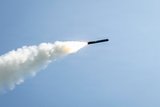Europeans $100 billion short of NATO spending pledge, says study
Europe would need to boost defence spending by more than $100 billion to hit the NATO spending pledge that has stirred much anger by US President Donald Trump, a study showed on 15 February 2019.
The failure of many European allies to get even close to the NATO target of spending 2% of their national output on defence by 2024 has infuriated Trump, who accuses them of freeloading. Figures from the International Institute for Strategic Studies (IISS) showed that NATO's 27 European countries fell short of the 2% target by $102 billion in 2018.
The IISS's annual Military Balance report said European NATO members would ‘collectively have had to increase their spending by 38%’ to hit the 2% target in 2018.
Trump's anger over spending has fuelled concern about his commitment to the transatlantic alliance, culminating in an explosive summit last year where he launched a blistering public attack on Berlin in a televised meeting with Chancellor Angela Merkel.
US military spending dwarfs that of the rest of the alliance - in 2018 Washington spent nearly $650 billion on defence, compared with around $250 billion for all the European NATO members combined, according to the IISS report.
NATO expects seven European countries to meet the 2% target when final figures for 2018 are calculated - up from just three a year earlier. But while Germany is making efforts to boost military spending, the sheer size of its economy means it is hard to quickly increase the percentage relative to its hefty gross domestic product (GDP).
To hit the 2% target, analysts say Berlin would need to vastly raise its defence expenditure between 2017 and 2024 - a problematic undertaking in any country, let alone one with Germany's post-war history of unease about military strength.
The increase in US spending alone from 2017 to 2018 - around $45 billion - almost equalled the entire German defence budget, the report noted.
More from Defence Notes
-
![Is the US magazine of air defence interceptors deep enough to sustain a long campaign against Iran?]()
Is the US magazine of air defence interceptors deep enough to sustain a long campaign against Iran?
The Pentagon spent a considerable number of THAAD and SM-3 rounds to attack Iran in 2025 and has not fully replenished its reserves.
-
![New Zealand buys tri-service uncrewed kit from Syos Aerospace]()
New Zealand buys tri-service uncrewed kit from Syos Aerospace
As uncrewed technology continues to play an increasingly central role in modern military activities, New Zealand’s recent acquisitions point towards its the force’s focus on cost-effective capability.
-
![US Air Force pushes Sentinel’s initial capability to early 2030s despite China’s nuclear progress]()
US Air Force pushes Sentinel’s initial capability to early 2030s despite China’s nuclear progress
While the US struggles to modernise the 50-year-old land leg of its nuclear triad, China has been rapidly developing and fielding new nuclear capabilities.





















